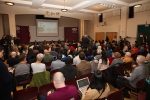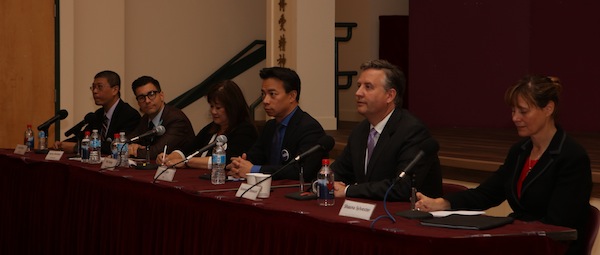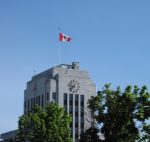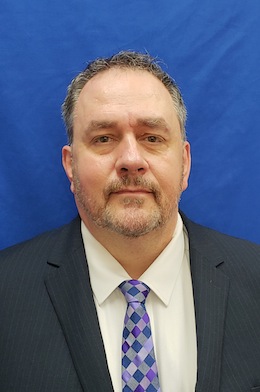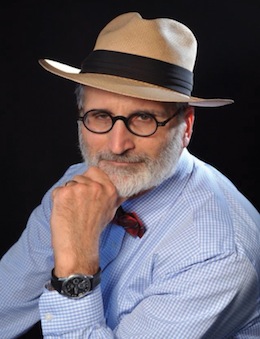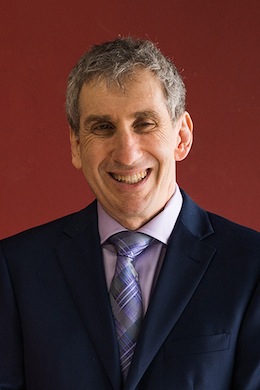(photo from Tracy Le Blanc from Pexels)
I am not normally someone who is especially active on social media. I am not normally someone who curates current events, even though I consume them like undergrads do coffee – habitually, obsessively, out of necessity.
For a long time, my political associations and the extent to which I follow world news have been largely separate from the image I have cultivated for public view. As far as Facebook is concerned, I am represented through dog videos, feel-good intercommunity displays of solidarity, recipes and the occasional satire poking fun at the absurd and horrifying climate we’re living in – but there has been a shift. A shift toward police brutality, transphobia, racism. A shift toward synagogue shootings.
I do not share news stories on such topics because I enjoy doing so. I don’t enjoy reading about things that make my heart heavy, nor offering vulnerabilities to people who do not see me as a person, but rather the embodiment of an idea they disagree with. I do not take pleasure in sharing pain. It is my very nature to shield myself and others from it. Although part of love is letting others learn, and that involves experiencing pain and hurt.
It is easier to stick one’s head in the sand, but it doesn’t make it right. It is important to denounce insidiousness and nefariousness when you see it, especially if it does not directly affect you. It is important to hold space for those who are impacted by the injustices of the world, to hold them up and offer your strength. In doing so, we hope others do the same for us, and perhaps that is the only way we can get through these dark times with any semblance of sanity, of humanity.
I used to make a point of sharing light-hearted, feel-good posts, cognizant of the “bad news,” which is in no short supply. I believe my intention to provide some degree of respite from the political apocalypse we’re currently observing was a good one, but I would wager also misguided. To curate news is one thing, to disengage from it is another.
It became clear to me that, just because I am kept abreast of political happenings, and that I see them all over social media, does not mean others do; a classic cognitive bias that I should have spotted much earlier. This is true of what is happening in Trump’s America, to people of colour, LGBTQ folks, indigenous peoples, immigrants and refugees, Muslim communities. This is true of issues and current events related to antisemitism – I am now startlingly aware just how little people know about it. Not only the frequency of antisemitic incidents in North America and Europe, but, at a much more basic level, what antisemitism is and how to spot it.
For many of my friends, especially those who I’ve met in London, I am the only Jewish person they know. While it shouldn’t significantly impact the way I conduct myself, the weight my actions carry is not lost on me when I am the entire schematic representation of “Jew” for many of the people I come across. There is a pressure to behave in a way that is contrary to the many persistent stereotypes that precede my traditions and my culture. I must be generous to a fault lest I be stingy. I must laugh off antisemitism and micro-aggressions lest I be perceived as a paranoid, uppity Seinfeld type. I must be soft and kind and open, I must not have strong opinions lest I be the overbearing, naggy Jewish woman. I must downplay my love of bagels (they’re so damn good).
I also must be a political chameleon, dodging demonization from the left and right for equal and opposite accusations: we are the puppet masters, yet the infiltrators. We are the root of capitalism, yet the root of communism. We are somehow the one percent who controls the world’s wealth, yet we also fund the movement that rallies against it. We are insular elitists, yet permeating globalists. Those of us who look like me have assimilated to whiteness and reap the benefits, yet we will never be “white enough” to those who would see us dead.
Over time, the belief sticks: “I must not behave in any way, shape or form, in any manner that would give credence to the ideas that this is how Jews are, as I represent them to so many.” Yet it’s as exhausting for me to keep up as it is to keep this narrative straight.
I thought that, perhaps if I wanted to be a socially engaged citizen of the world, I could avoid these pitfalls by sharing information about the world as neutrally as I could. I could be the “impartial reporter,” make the news palatable, make it sterile. I could be taken more seriously, sanitized of emotional attachment that would otherwise be paint me as “irrational,” which is the ultimate insult in political and academic discourse. (Undoubtedly rooted in sexism and undoubtedly seen as weak, as it is perceived as feminine.)
But to do this serves no one well. It is inherently more harmful to the people who are affected by the issues being reported. To be “unbiased” in the wake of something that should not be polarizing, yet somehow is, ultimately reflects complicity. It is contrary to my values as a person. It is contrary to my values as a Jew.
This confuses many people, who know I am largely secular and open in my agnosticism. How can I profess myself to be as Jewish as I do, while maintaining such a wide berth from religiosity and theism? By that definition, I’m not “that Jewish.”
I may not believe in a God, but I do believe in my people, and in the traditions that shaped me to be who I am. I am Jewish insofar as my birth and upbringing, in my values and my conduct, in my pursuit of tikkun olam, repairing the world. I am “Jewish enough” to lead services despite my relationship with my faith. I am “Jewish enough” to abstain from pork but not “Jewish enough” to abstain from shellfish or cheeseburgers. I may not be “so Jewish” as to observe Shabbat to the letter, but I am Jewish enough to be gunned down in a synagogue.
My tradition is one of orthopraxy, of deed over creed. We are meant to “pray with our feet” as well as with our words. The Talmud teaches us not to be overwhelmed by the enormity of the world’s grief, but rather to do justly now, love mercy now, walk humbly now; that we are not obligated to complete the work of repairing the fractures and chasms in our world, but neither are we free to abandon it.
There is the story in the Talmud of a man who came to the great rabbis of the day and told them to teach him Torah while he stood on one foot. He did this to mock them. He first went to Rabbi Shammai, who refused to engage when he recognized the man’s intentions. The man went next to Rabbi Hillel and made the same challenge: teach me your Torah while I stand on one foot. Rabbi Hillel knew this man’s intention as well, but he was patient. He simply said, “What is hateful to you, do not do to others; all the rest is commentary. Go and study this.”
It should be that simple. If only it were that simple. I don’t know if the reason it isn’t is because of psycho-schematic representations in our minds, or nationalism, or capitalism, or groupthink, or whataboutisms, or strawmen, or ego, or that we forget that, when we bleed, we all bleed the same. I don’t know if it’s because we’ve forgotten how to be empathetic, or we’ve stopped doing it because it hurts, or that we feel powerless and that feels worse.
A friend told me recently that they don’t engage with this stuff because they’ve become numb to the horrors of the world. I can understand that, truly. Although I think it is precisely because of the commonplace, routinized nature of these injustices that we must engage because, when we don’t, they become routine, and they become a part of the fabric of our society that we will forget shouldn’t be there in the first place.
We have a saying in Judaism, “tzedek, tzedek, tirdof,” “justice, justice, you shall pursue.” But our understanding of tzedek is different to that of mishpat or din, other Hebrew words referring to justice or law in a strictly legal sense. Tzedek is tempered by compassion, of doing not necessarily what is lawful, but what is the right thing to do. And there is an emphasis on the action, on the doing. This may very well be rooted in some of the many names Jews use to refer to God, and the concept that people are made in God’s image.
In our tradition, there are many different names for God to reflect different aspects of God’s characteristics. Elohim is common, derived from the ancient word for judge. Certainly, people who are unfamiliar with the Torah often criticize the “Old Testament” for barbarism, for a wrathful, vengeful God that falls uncompromisingly into this depiction of an impartial, removed judge who delivers reward or punishment in accordance with the word that was given. I’m not about to unpack that, that’s a whole other essay in itself.
Unquestionably, the most sacred name we have for God is one we don’t even know how to pronounce, and are not supposed to pronounce, that is often anglicized as YHVH. It is derived from the Hebrew word for “to be,” and it is sometimes understood to translate roughly as “the Essence of Being.” This name is said to reflect an intimacy, a mercy, a love that perhaps we don’t even know how to name.
These different names may suggest a God of multiple beings, or even multiple gods, but Judaism is quite strict in its monotheism, and these names are used in scripture deliberately in ways that are context-dependent: Elohim deals justice, YHVH deals in mercy.
“Genesis tells two creation stories,” writes Rabbi Mark Glickman, “in the first, Elohim is the Creator, in the second, the creator is YHVH Elohim. To reconcile the accounts, ancient rabbis argued that God first tried to create the world using only justice, and it didn’t work.”
I’m very much a Darwinist by trade, but the message of this rings true to me. To exact change, to make something sustainable, we must do so with justice that is tempered by compassion.
Now, compassion does not mean, “try to understand neo-Nazis and justify their actions.” What compassion does mean, at least in part, is to show kindness and solidarity to other groups who are being hurt, even when we ourselves are licking our wounds and trying to find our feet. It means to support one another, even when we ourselves have trouble standing. It means speaking up for those whose voices are hoarse and raw from screaming. It means using our visibility to shed light on stories that are sequestered to shadows. It means form a patchwork quilt of community, which, when stitched together and reinforced, is warm, strong and unbreakable.
These are dark times. I say this not with the intent to be dramatic or prosaic, but simply factual. But that doesn’t mean we can’t kick at it until it bleeds something more hopeful. That being said, if we want any chance of making it out alive, we’ve got to get to work.
Sasha Kaye is currently studying in London, England. An alumnus of King David High School and the University of British Columbia, she enrolled at the Royal College of Music in London in performance science after her studies in classical voice performance and psychology at UBC. She was recently awarded a master’s of science with distinction for her research on the use of simulation technology as part of an intervention strategy to manage performance-anxiety symptoms. Now a doctoral student at RCM, Kaye is working to identify areas where elite musicians may require additional support to thrive in life, rather than simply survive.





